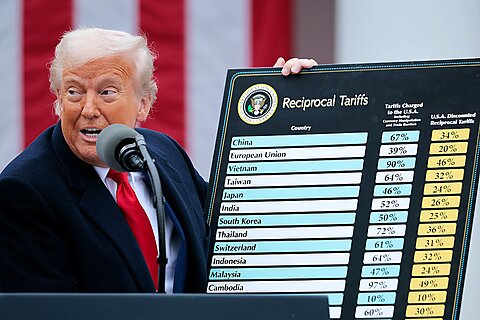The Bureau of Labor Statistics (BLS) recently released price index data for June. Unfortunately, tariff defenders are drawing incorrect conclusions from this data. For instance, Vice President Vance used the lower-than-expected producer price index (PPI) numbers to claim that the “economics profession doesn’t fully understand tariffs,” even though the PPI does not include imports, the sector most likely to show immediate tariff effects. But even the latest import price index has led to some spurious inference about the inflationary effects of tariffs, or lack thereof.
First and foremost, tariffs, like other supply shocks, exert inflationary pressure, but final inflation depends on lots of factors, such as the labor market, demand changes, or monetary policy. The primary problem with tariffs is their real consumption harm because domestic consumers in the US will have a smaller selection of goods to choose from, and domestic producers will face less competition. In short, tariffs distort the economy from its equilibrium, resulting in a welfare loss. Also, macroeconomic effects of government policy take time to show up in the data, often several quarters later. Coupled with the haphazard and arbitrary nature of this administration’s trade policy, this means that no serious inference can be made on tariffs right away.
Now, back to the import price index (IPI). The latest BLS report shows just a minor 0.1 percent increase in the IPI in June, and this has led to speculation that foreign producers are not passing on their costs to US consumers. This is despite the BLS explicitly stating that tariffs, which are a form of government tax, are not included in import prices but are rather (correctly) included in government expenditures. This means that if the data is to be taken at face value, i.e., there was no change to import prices in June, foreign producers passed on almost all their tariffs onto US importers.
But a close inspection of the data highlights the faults in using June import prices to draw meaningful conclusions about tariffs. The aggregate IPI includes the price of energy, a notoriously volatile component, and is also largely exempt from the Liberation Day tariff proposal. A correct examination of June’s price releases shows that import prices for tariffed goods did increase.
Figure 1 shows annualized inflation in import prices across three metrics: all commodities, all imports excluding fuel, and fuels and lubricants. The inflation metrics are also computed month-to-month (i.e., inflation from May to June 2025), quarter-over-quarter (from April to June 2025), and year-over-year (from June 2024 to June 2025). As the figure shows, simply looking at import prices for all commodities is misleading. The index for overall goods showed a small increase in June but a modest reduction over the second quarter of 2025 and from June of 2024. But this was largely driven by energy import prices, which fell by over 8 percent in the second quarter of 2025 alone. Import prices for goods minus energy—the commodities that were actually tariffed—rose over the prior month, quarter, and year.
The increase in prices post-Liberation Day was significant. Figure 2 shows the annualized inflation rate over the past three months for all months in 2025.[i] The data are shown for all commodities as well as for all imports excluding fuels. To an observer only looking at inflation in all imported commodities, prices rose faster before Liberation Day. Since April, prices have either remained stable or fallen, driven by falling energy costs. The quarterly rate of inflation for commodities minus energy, however, paints a different picture. The highest rate of import price increase occurs after the imposition of broad tariffs, driven by an over one percent increase in the month of April itself. Since tariff charges aren’t included in the IPI, this means that US importers have paid increased prices and tariff surcharges since April.
Again, none of this should be misconstrued to be the effects of Liberation Day tariffs. The economic effects of trade policy are complicated, and it’s likely that the full effects have not yet shown up in the data. That doesn’t take away from the bad economics of supply shocks like tariffs, which are distortionary. All analysts and policymakers, whether pro or against tariffs, should be patient and careful when analyzing economic data to draw meaningful conclusions on the macroeconomic effects of trade.
[i] The three-month inflation rate best captures the recent “trend” of inflation. This is because it smoothes out the volatility of monthly inflation reports nor is it subject to the lagging effects of year-over-year inflation.

